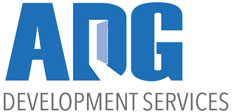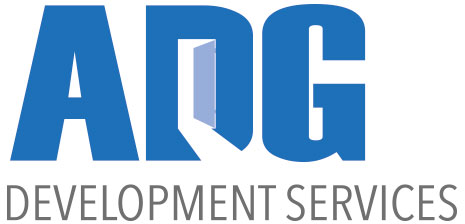Recommended Reading:
Coaching Up and Down the generations, by Lisa Haneberg (2010) published by ASTD Press.
Coaching the Team at Work, David Clutterbuck (2007) published by Nicholas Brealey International
Leadership Team Coaching in Practice, (Developing collective transformational leadership) Peter Hawkins (2017) published by Kogan Page Limited.
Leadership Team Coaching in Practice, (Developing high performance teams) Peter Hawkins (2014) published by Kogan Page Limited.
Leadership Coaching, Graham Lee
Mindset, Changing the way you think to fulfil your potential, Dr. Carol S. Dweck
Systemic Coaching and Constellations, The principles, practices and application for individuals, teams and groups by John Whittington, (2nd Edition 2016) published by Kogan Page Limited
The Reflective Practice Guide, An interdisciplinary approach to critical self reflection
by Barbara Basset, (2016) published by Routledge
T A Today, A New Introduction to Transactional Analysis, Ian Stewart and Vann Joines
MSc Coaching & Behavioural Change Research Papers:
Group Dynamics & Systems Thinking (2019) by Diane Gerrard
Reflective Practitioner (2018) by Diane Gerrard
Advanced Coaching (2018) by Diane Gerrard
Neuroscience, and NLP (2018) by Diane Gerrard
MSc Coaching & Behavioural Change Dissertation (2019-2021)
Multi Generations in the Workplace
by Diane Gerrard
Understanding Today’s Generations in the workplace – Diane Gerrard – April 2021
Using Coaching to manage the post covid return – Diane Gerrard – April 2021
Virtual coaching and the multi-generational workforce – 2020 (Podcast by Diane Gerrard)
Career coaching – don’t overlook the over 50’s – Diane Gerrard -2021
Virtual coaching and the multi-generational workforce – 2021 (Podcast by Diane Gerrard)
Exert from Group Dynamics & Systems Thinking (2019) by Diane Gerrard
Group dynamics are emotion based, conscious and unconscious emotions, they involve unknown and unrealised forces individuals experience all the time and brought into groups allowing us to analyse group behaviours and interactions. Group dynamics is a study of group members interrelationships (Henley Business School, 2016)My knowledge of Neuro linguist programming (NLP) includes conscious and unconscious emotions, forces and experiences (Bandler & Grinder, n.d.)which affect us all and this will be covered later.
Systems Thinking is a way of understanding and exploring the deep knowledge of teams as part of an organisations with a past, present and future. It allows us to understand individuals and groups through an understanding of the systems individuals are part of, the principles, and priorities. Systemic Team Coaching models and frameworks are used in developmental coaching and behavioural change to explores the hidden dynamics and resources for individuals and teams. I found it valuable to support and develop individuals within my HR Team and other teams I’m part of which allowed us to understand the systems we work within and models which can create a visual for all involved to resolve issues. (Whittington, 2018)constellation experience will be covered in my reflections.
Teams are types of groups and used when referring to specific team(s). A team is a group of individuals coming together for a specific goal or purpose (Izod, 2017)for example, our coaching supervision group where we meet, and support each role to be the best coaches we can be with the goal of motivation and engagement and there is opportunity for learning and development within the team. There is high level of team member interdependence, responsibilities and within team membership boundaries, e.g., confidentiality, engagement and motivation. (Clutterbuck, 2014).
Groups are a collection of individuals who have a purpose or may not and may have been purposefully or organically formed (Hardingham, 1998). My role as MSc representatives involves being part of a group and the purpose is to share ideas for improvements from the MSc08 group to Academic team for future programmes. I am not part of a team in this role we are all individuals focusing on the specific agenda for that meeting and there is no specific learning and development opportunities.
Team coaching is the coaching of a whole team as a process, both when they are together and when they are apart to help improve their collective performance and consider how they work together (Hawkins, 2017). My coaching supervision team working with a Supervisor/coach has ongoing learning opportunity with the team as a whole and for individuals during supervision meetings and afterwards to enable us to improve and focus on developmental rather than problem-centred, quick fix for teams. (Diedrich, 2001). This team-based learning and development intervention considered the team to be a system and applied to the team as a whole (Jones, et al., 2018)
Why group dynamics and systems thinking principles are important?
These principles are important because we are all part of groups within Organisations, smaller sub-groups which consist of individuals. Organisations are part of systems, each interrelated and the success of whole organisation is only as effective as it’s group collective. (Thornton, 2016). To generate change within large global organisations it’s important to understand groups and systems which I discovered during my time as HR Manager at Microsoft.
Today, Organisations are held accountable for their contribution to environmental or economic impact now and for future generations. (Hawkins, 2017). Business must be adaptable and respond to change beyond group intelligence and decision-making strategies (Hawkins, 2017). Recently a dam burst in Brazil with many thousands of lives lost including workers, local villagers and homes totally destroyed. Now, this disaster irreversibly changed lives of those who lost, or are now living or working in the area of the destruction and there is very little trust for anything communicated by the Dam organisation since relating to the environment and safety which has major impact on the country not just now but for many future generations. Companies must be adaptive and responsive for business survival and be accountable. (Hawkins, 2017)
The organisation responsible for the poor dam construction, the lost lives of employees and families in the wide community destroyed and over the next months and years all individuals and groups will be held accountable for this humanitarian tragedy and all other constructions of dams will be closely monitored. This disaster demands for Organisational accountability to overcome corruption and poor health and safety and will highlight the power of groups. In our global organisational world an understanding of group dynamics can bring effective and sustainable organisational changes even in the third world economy.

